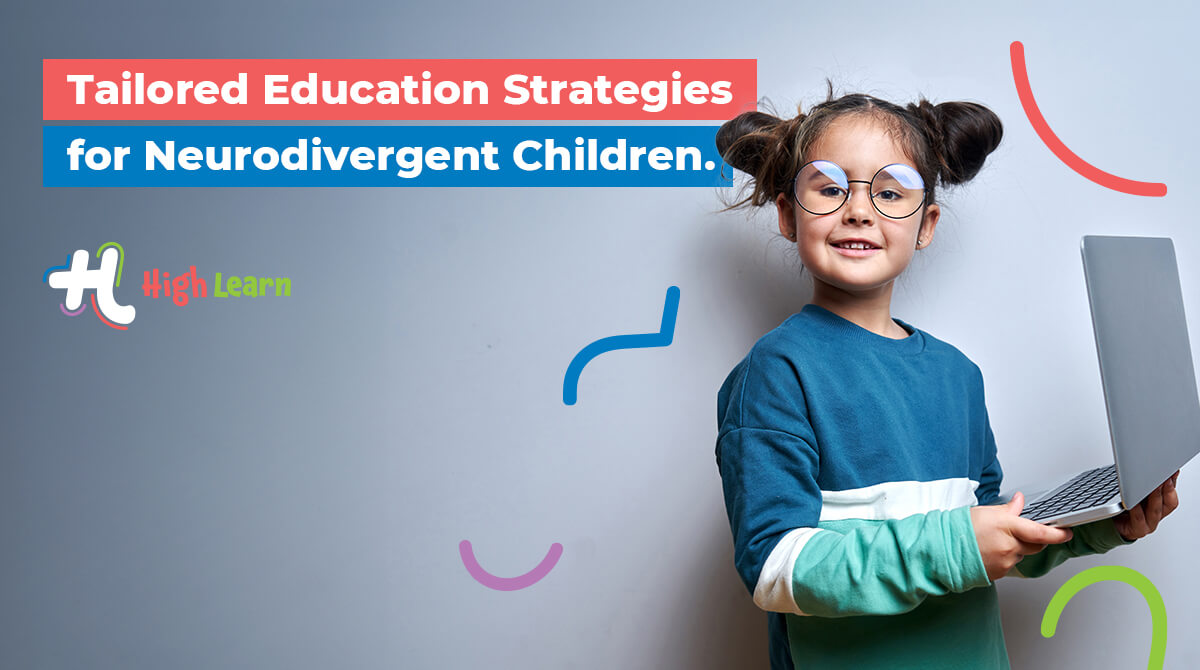Education is a crucial element in a child’s development. However, it is essential to recognise that every child is unique, with their own set of strengths and challenges. For families with children diagnosed with Attention Deficit Hyperactivity Disorder (ADHD) or other neurodivergent conditions, navigating the educational landscape can be particularly demanding. In this blog post, we will delve into what ADHD entails, explore strategies for coping with ADHD in remote learning settings, discuss methods for identifying children with ADHD, and provide insights into how to approach and support these remarkable, neurodivergent children.

Understanding ADHD
ADHD, also known as Attention Deficit Hyperactivity Disorder, is a neurodevelopmental condition that impacts a child’s ability to sustain attention, control impulsive behaviour, and manage their energy levels. It is crucial to emphasise that ADHD is not a consequence of poor parenting or laziness; it is a bona fide neurological condition.
As elucidated by Additude Magazine, ADHD manifests in two primary subtypes: the inattentive type and the hyperactive-impulsive type. Inattentive-type individuals often grapple with challenges in maintaining focus and staying organised, while those with the hyperactive-impulsive type may exhibit increased restlessness and impulsivity.
Coping with ADHD in Remote Learning Environments
The advent of the COVID-19 pandemic has ushered in a surge in remote learning, a situation that can be particularly challenging for children with ADHD. To assist educators and parents in managing this scenario effectively, consider the following strategies:
Establishing a Routine: Craft a well-defined daily routine that includes dedicated times for learning, breaks, and physical activity. This structured approach aids children with ADHD in managing their time and attention.
Minimising Distractions: Create a quiet and uncluttered workspace for remote learning to mitigate potential distractions. Noise-cancelling headphones can be beneficial if noise remains a concern.
Embrace Interactive Learning: Incorporate interactive and hands-on activities into lessons to captivate the attention of children with ADHD more effectively.
Frequent Breaks: Permit short, frequent breaks to help children reset their focus and energy.
Individualised Learning Plans: Collaborate closely with teachers to devise tailored learning plans that cater to the specific needs and strengths of each child.
Identifying Children with ADHD
Recognising children with ADHD is a pivotal step in delivering the necessary support. Some common indicators of ADHD, as highlighted by Edutopia, encompass:
- Difficulty in maintaining attention, adhering to tasks, or following instructions.
- Frequent instances of forgetfulness, misplaced belongings, or disorganisation.
- Impulsivity, including interrupting others or struggling with patience.
- Restlessness, accompanied by fidgeting and excessive talking.
- Regular errors stemming from a lack of attention to detail in schoolwork.
It is imperative to underscore that diagnosing ADHD should be carried out exclusively by qualified medical professionals, such as paediatricians or child psychiatrists.
Approaching Children with ADHD
When interacting with children who have ADHD, it is essential to adopt a compassionate and understanding approach. Here are some valuable tips for both educators and parents:
Exude Patience and Empathy: Recognise that children with ADHD do not engage in challenging behaviours deliberately. Approach them with patience and empathy as they navigate their unique challenges.
Enhance Communication Clarity: Utilise clear and concise instructions, and break down tasks into manageable steps to facilitate understanding.
Implement Positive Reinforcement: Acknowledge and reward positive behaviour and achievements. Positive reinforcement can serve as a powerful motivator for children with ADHD.
Maintain Collaborative Channels: Foster open lines of communication with teachers, therapists, and other professionals engaged in the child’s education and treatment.
Encourage Strength Development: Identify and nurture the child’s inherent strengths and interests. Celebrate their successes and actively contribute to the cultivation of their self-esteem.
In conclusion, supporting neurodivergent children, including those with ADHD, necessitates a comprehensive approach characterised by understanding, structure, and personalised strategies. Through collaborative efforts, educators and parents can empower these children to unlock their full potential and flourish on their educational journey.
